VW’s announcement marks a pivotal moment for Europe’s legacy OEMs with huge repercussions for German production and broader European supply chains. Daniel Harrison, automotive analyst at Ultima Media assesses the causes, potential remedies, and opportunities.

It is becoming increasingly apparent that the majority of legacy automotive manufacturers, and not just VW, have been struggling with the EV transition for a few years now, particularly as the rate of EV growth slows. For example, Volvo has scrapped its plan to sell only EVs by 2030, while Nissan has rethought its strategy because of slower-than-expected EV sales, and Ford has shifted its focus from EVs back to hybrids following disappointing EV sales.
Bringing the focus back to Europe and Volkswagen specifically, closing two plants may not seem significant in the context of its 114 global plants. However, VW Group recently announced large job cuts or a possible closure of its Audi plant in Brussels, and it is reported that VW may also close one or possibly two of its Chinese plants with partner SAIC. However, this latest announcement by VW is a much more significant moment as it is the first time in the company’s 87-year history that it has considered shutting down plants in its German industrial heartland.
But this is not entirely unexpected. In 2023, VW agreed with its works council a €10 billion ($11.5 billion) cost-reduction programme, including a 20% reduction in ‘administrative personnel costs.’
However, in response to industry price wars and tougher competition, VW reduced its prices significantly. These price cuts, claimed Daniela Cavallo, chair of the VW works council, have cost VW hundreds of millions of Euros in profits. In combination with restructuring expenses, these discounts have undermined VW’s efforts to reduce costs. As a result, Volkswagen’s automotive cash flow, a key metric, turned negative in the first half of 2024 to minus €100m ($115m), compared with a positive €2.5 billion ($2.9 billion) in the first half of 2023.
“The transition to electrification was always going to be challenging, but compounding economic factors, coupled with the rise of cheaper Chinese EVs, have escalated the situation into an existential crisis for VW”
- Daniel Harrison, Automotive Analyst for Ultima Media

Unsurprisingly in that context, head of the brand group core Thomas Schäfer has reportedly admitted that cost-saving plans have not met expectations. Furthermore, since 2023, overall market conditions have fundamentally changed, and the situation for VW has deteriorated significantly. Arno Antlitz, Volkswagen Group’s chief financial officer (CFO), stated that VW now has “a year, maybe two years, to turn things around.”
Daniela Cavallo, chair of the works council representing VW employees, commented: “As a result, the executive board is now questioning German plants, the in-house collective wage agreements, and the job security programme running until the end of 2029.” However, this fundamental shift in position from the VW board is a raising of the stakes and a clear divergence from its previous strategy. Fundamentally this is due to VW Group facing a number of evolving challenges on virtually every front, at home and abroad.
VW Group challenges
-
Overall European volumes have not recovered to pre-Covid levels: As a result, Antlitz indicated VW was now facing a shortfall in demand in Europe of around 500,000 vehicles, equivalent to around two factories’ output adding that “The market is just not there”.
-
Plummeting VW Group Chinese sales: VW previously generated as much as 40% of sales and 50% of profits from its Chinese vehicle sales. However, VW became somewhat complacent and did not innovate. Fundamentally, VW’s offerings have proven increasingly uncompetitive against Chinese OEMs, which offer cheaper, better value vehicles with more advanced software and infotainment systems – features of particular importance to Chinese consumers. As a result, VW Group’s market share in China is now haemorrhaging. Profits from China, Volkswagen’s largest market, have nearly halved over the past decade to €2.6 billion ($3 billion) in 2023. This loss of market share is particularly painful for premium VW Group brands and other premium German OEMs that have relied upon this cash cow for much of their profitability up until now. Oliver Blume, VW’s CEO recently put it very starkly “There are no more cheques coming from China.”
-
Lack of competitiveness: Drastically cheaper EVs from China pose an immense challenge to VW’s structurally higher cost base. Strong German unions result in higher labour costs, making German vehicle production costs for VW among all their global plants. Additionally, European energy, regulatory, logistics and land costs are all correspondingly higher. Germany, in particular, is suffering from high energy costs, which are among the highest in Europe and have also become a major challenge for the country’s chemicals and steel sectors. As Schäfer, VW’s head of brand, recently admitted: “With many of our pre-existing structures, processes and high costs, we are no longer competitive as the Volkswagen brand.”
-
German manufacturing is struggling: It is not just VW reassessing its German investments; German manufacturing has been in recession since 2022. Blume admitted: “Germany in particular, as a manufacturing location, is falling further behind in terms of competitiveness. In this environment, we as a company must now act decisively.”
-
Adjusting investment to slowing EV demand growth: EV sales have not collapsed, in fact, as Automotive Logistics recently reported, global EV sales hit record highs in 2024 and are expected to steadily increase. The problem, however, is that the multi-billion-dollar EV investments OEM’s have committed to are contingent upon the continuation of exponential growth of EV sales. VW has bet big on the EV transition, investing billions of Euros in developing new EVs and building gigafactories through its battery company PowerCo. However, not only is overall European EV sales growth slowing (with a decline in Germany due to the EV purchase incentives at the start of 2024), but VW is also losing market share in Europe to other EV players, namely Tesla, Stellantis, BMW and Geely-Volvo. Chinese brands such as SAIC-GM, and BYD are also starting to gain traction. VW’s inability to adapt quickly to these changing realities is hurting its bottom line.
-
Legacy OEMs inefficiency: While the EU claims Chinese EVs are artificially cheap due to state aid, Chinese OEMs argue they are simply more efficient at manufacturing EVs. Both statements can be true. It is notable that most Chinese EVs use more localised battery supply chains to reduce costs, but more significantly, they use lower cost LFP batteries rather than the more energy-dense NMC chemistry fitted to most Western EVs.
-
Imminent threat of cheaper Chinese EVs: The automotive sector has become far more crowded. As Blume admitted, “The economic environment has become even tougher and new players are pushing into Europe.” While VW has invested heavily in EVs for the mid and premium segments, it has been slow to develop an affordable mass-market EV, expected to arrive between 2025 and 2027. Chinese OEMs have been quicker to market, betting big on EVs. Although the EU and China both face overcapacity in auto production, China is in a stronger position to export the excess to Europe and North America – despite stiff import tariffs on Chinese EVs. Should these tariffs go ahead, there are concerns that BYD, Chery and Leapmotor could accelerate plans to build production capacity in Europe to circumvent them.
-
Squeezed margins: The Covid-19 period created an artificially supply-constrained market, supporting high vehicle prices and a focus on higher-margin SUVs and pickups, which increased OEMs margins despite lower volumes. Now, supply chains have gradually normalised, leading to a more demand-constrained market. The Volkswagen brand within VW Group faces a specific problem – low margins. In an investor presentation in 2023, VW stated it aims to grow VW brand margins from 3.6% in 2022 to 6.5% by 2026. However in the first six months of 2024, margins were only 2.3%.
-
EV price wars: The inevitable rise of low-cost EVs from China has triggered a price war, particularly with the rise of BYD, China’s leading EV maker, and Tesla making aggressive price cuts. Legacy automakers have been forced to follow suit, cutting the price of their EVs. This is painful when many EVs are already sold at a loss, reportedly as high as $50,000 per vehicle in Ford’s case.
-
Growing debt: VW is increasingly burdened by around €200 billion ($230 billion) of debt and must achieve a return on investment (ROI) or face consequences. This is difficult when profit margins are slim and ROI is a slow process. Antlitz, Volkswagen Group’s CFO, stated: “We have been spending more money at the brand than we earn for some time now. That doesn’t go well in the long term. If we carry on like this, we won’t succeed in the transformation.”
-
Inferior EV software: VW’s in-house Cariad software division is widely regarded as having disappointed, hurting the customer appeal of VW Group’s ID range of EVs. VW has tacitly given up on Cariad, which is why it has invested $5 billion in a joint venture (JV) with Rivian to access more advanced software.
-
Strong unionisation/works council: VW’s ownership structure is highly politicised. The company is controlled by a 20-seat supervisory board, with the works council holding half the votes, along with two politicians from Lower Saxony who usually vote with them. For too long, the VW Group has prioritised keeping unions happy over profitability for shareholders. As a result, “Volkswagen is the archetypal legacy automaker: flabby, slow-moving and valued as if it was going out of business,” wrote Stephen Wilmot, a columnist for the Wall Street Journal. Unions will likely resist planned plant closures, a key part of VW’s structural problem, as they have historically resisted the dynamic changes needed to adapt to growing competition. Nonetheless, the German federal government has already said it will intervene, as these closures would significantly impact Germany’s struggling manufacturing base and the long supply chain of smaller tier suppliers that support VW’s plants.
-
Consensual industrial relations: Since World War II, Germany’s post-war economic recovery was largely achieved through a consensus among industry leaders, trade unions and politicians over production and labour decisions. This has been key to Germany’s industrial success story – until now. However, with the loss of cheap energy from Russia and decline of once-lucrative exports to China, this consensual model is needing to be reevaluated.
-
The challenge of VW Group’s size: The large, monolithic VW Group makes quick change difficult. With nine brands, 114 plants and 684,000 employees globally, achieving rapid transformation is a formidable task. The governance structure and voting rights also complicate enacting structural changes.
-
CO2 targets: Due to VW Group’s individual (group average) CO2 target, the group has one of the highest EV sales targets in Europe. It must increase EV sales from 15% of its European sales in 2023 to around 24% in 2025 or incur steep fines per vehicle. However, the group is reluctant to push EV sales too high while EVs remain unprofitable, which ultimately hits overall profits. VW is not due to launch a low-cost mass-market EV until at least 2025, leaving the group in a difficult position regarding the European Commission’s CO2 targets.
-
Dieselgate: The ongoing legal cases against VW remain a financial burden and continue to damage its brand image, serving as a constant reminder of why the EV transition is particularly crucial for shifting away from its polluting legacy. To add to VW’s woes, former CEO Martin Winterkorn is currently on trial and could potentially face prison.

Fundamentally closing two plants alone will not save VW; it only temporarily addresses a small part of the company’s much larger structural problems.
This point was underscored by VW brand chief Schäfer, who remarked, “the situation is extremely tense and cannot be overcome by simple cost-cutting measures.” However, as the saying goes “Never let a good crisis go to waste.” If VW truly grasps the situation, it can use this opportunity to implement radical reform and reinvent itself for the electric era.
“Whilst uncertainty dominates the landscape, one thing is clear: this is a crucial inflection point for legacy automakers, particularly in Europe”
- Daniel Harrison, Automotive Analyst for Ultima Media
Manufacturing implications and opportunities
-
Smart Factory: To reduce costs, improve productivity, sustainability, speed to market and production flexibility, OEMs need to invest in and transition towards the Smart Factory concept.
-
Sustainability: Sustainability is not only about climate change; it is also about energy reduction, production efficiency and cost-cutting. As Automotive Manufacturing Solutions reported with design and manufacturing integration and digitalisation, these are key to cost and sustainability gains for BMW.
-
Electrification: VW has been proactive in the EV transition vertical integration, investing heavily in upstream raw materials, gigafactories and EV software. However, VW has lagged in developing an affordable mass-market EV, as well as hybrids as an interim measure.
-
Automation: Robotics, automation and production efficiency are closely linked with reducing labour costs. As EV production rises, the demand for more advanced automation increases as well.
-
Digitalisation: Increasing digitalisation is key to scaling battery cell production for EVs and achieving the economies of scale necessary to reduce battery and EV costs.
-
Manufacturing software: Investment in more efficient manufacturing and production software, such as, Mercedes-Benz’s connected factory software, boosts productivity.
-
Reducing complexity: Simplifying operations is one of the most powerful ways to cut costs. Daniela Cavallo, chair of the works council representing VW employees has suggested that instead of plant closures, the VW board should focus on simplifying operations and leveraging synergies across the VW Group. She referred to VW’s “documentation madness” and “salami-slicing tactics,” suggesting streamlining could save costs without drastic measures.
-
Innovation in manufacturing: Reducing parts complexity, known as the large parts strategy, can reduce costs and improve production speed. Gigacasting, pioneered by Tesla and adopted by GM, is one method to achieve this. While VW invested in this in 2022, results won’t reportedly materialise until 2026.
-
Leveraging JVs and partnerships: VW must leverage its partnerships and JVs more to drive down costs and become competitive within the EV space. Though progress has been made with partners like Xpeng and SAIC, VW remains behind the curve. For example, SAIC/MG are bringing solid-state batteries to market in budget EVs in 2025, but VW is not part of this technological advance, despite partially owning SAIC.
-
Artificial Intelligence (AI): AI is already improving production operations and efficiency in automotive manufacturing, and its potential use cases continue to grow.
-
Regionalisation/localisation: Shortening supply chains is critical to reducing costs and increasing EV affordability. VW‘s low-cost EV, planned for 2025, will depend heavily on this strategy. Given the company’s current challenges, the rollout cannot come soon enough.
What’s likely to happen?
The gravity of the numerous challenges facing VW means that drastic changes are inevitable. While the works council may strongly oppose the potential closure of the two German plants, clinging to the hope that sales will recover could ultimately lead to the collapse of the company – and with it, all the plants. The works council and unions are expected to push back against any threat to job security, arguing that such measures would undermine Germany’s long-standing social contact in industrial relations.
However, VW’s board would likely argue that these tough decisions are necessary to adapt to evolving market realities. Painful as it may be for all stakeholders, the company must prioritise long-term competitiveness in a rapidly moving market.
The only realistic alternative is business failure, and the German government will also not allow that.
Whether some form of compromise can be reached with unions, such as reduced workweeks or voluntary redundancy programmes, remains to be seen. However, such measures may not be enough, and only delay the inevitability of plant closures.
A potential domino effect
Volkswagen’s move to reconsider its job security scheme and explore plant closures may set a precedent for other OEMs across Europe and beyond. As the industry grapples with the same pressures, companies may be forced to radically restructure, merge, or seek alliances and partnerships to reduce costs and mitigate the risk of failure.
The transition to electrification was always going to be challenging, but compounding economic factors, coupled with the rise of cheaper Chinese EVs, have escalated the situation into an existential crisis for VW.
Whilst uncertainty dominates the landscape, one thing is clear: this is a crucial inflection point for legacy automakers, particularly in Europe, as they struggle to balance profitability, the EV transition and survival in a rapidly changing global automotive market.
Stay tuned to Automotive Manufacturing News. AMS will continue provide in-depth coverage of these topics throughout the year across digital, newsletters, print, reports, livestreams and events.































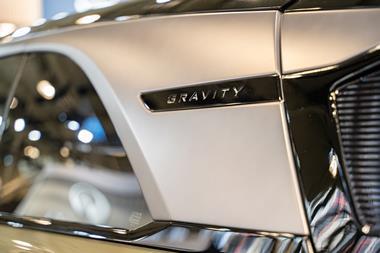
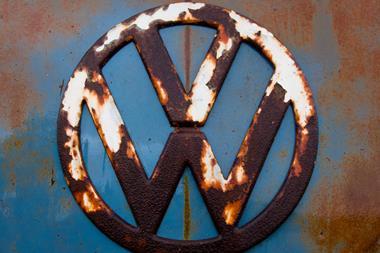
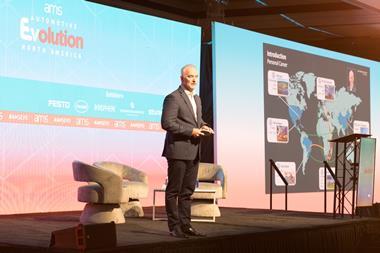
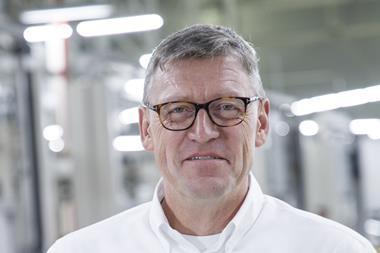
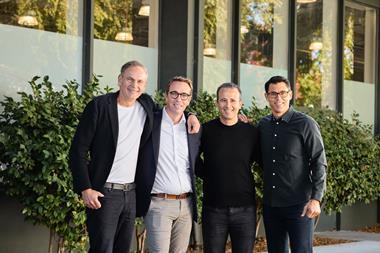
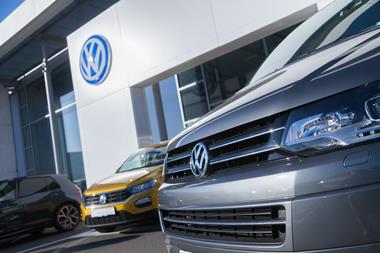



No comments yet